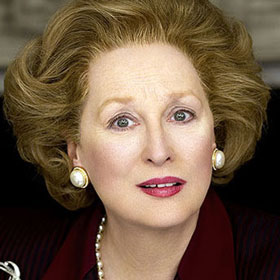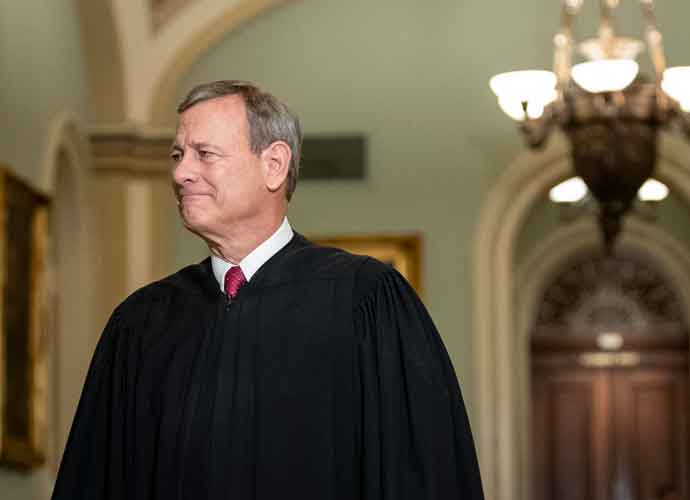The Iron Lady

4.5/5
It's surprising how much of The Iron Lady is taken up by scenes of an old, ailing Margaret Thatcher — played with sensitivity and poise by the equally indomitable Meryl Streep — hobbling about her London flat, occupying herself with menial, domestic tasks: washing teacups, fiddling with a DVD case, signing piles of hardcovers, one-by-one. Some (most notably the current British prime minister, David Cameron) have said it's distasteful, given that Thatcher — yes, still alive — presumably remains in a similarly ignoble state, the longest and deepest fall from glory of any woman ever glorified.
It would be tedious to describe how The Iron Lady's depiction of Thatcher compares to who she actually is, not least because her politics are both quite recent (she served 1979-1990) and divisive. Does the film take a side, choosing either to vilify or to sanction Thatcher's conservative politics? Of course not. What it does do, however, is offer an intimate, often very personal look at a woman's career, which is nothing if not brilliantly fascinating. "The film requires you to imagine Margaret Thatcher as a human," Streep eloquently said in a recent interview. "Some people have a lot of difficulty doing that."
I would add the word "understandably" to Streep's second statement, considering Thatcher's merciless role in the war of the Falkland Islands and the Irish prisoners' hunger strike — two events that are worth looking up as helpful context for the film, which brushes past them in the grand march to cover the entirety of Thatcher's biography. Flashbacks, occasioned by a wide range of mementos that surround the hobbling Thatcher, tell us this story of a grocer's daughter who grows up to be the first female prime minister in the western world. Two men in Thatcher's life — her father and her husband (the latter played by Jim Broadbent) — are shown to be instrumental in shaping both her personality and her career; in what constitutes an obvious reversal of gender norms, we get to see the "great men" behind a greater woman.
And Thatcher is great — undeniably so! Our squeamishness over her so-called political evils ought not to disinherit her of her virtues — bravery, intellect, diligence. In a word, backbone, which Streep captures and champions convincingly. You might even say, transcendentally. Sublimely. Utterly beyond expectation, which is already as high as you can get for the actress with the most Academy Award nominations of anyone, days away from augmenting her record. It's by now already a cliche to say that Streep-as-actor is infinitely better than The Iron Lady-as-film, but the comparison is an unfair one — and silly, given the fact that Streep is in every scene except those when young Thatcher is played by Alexandra Roach. So some people working on this rather small film (including the director) have not mastered the art of their professions the way Streep has mastered hers. Who out there has?
Belonging to — but not exactly fitting in with — the "Oscar-bait" genre, The Iron Lady mirrors its subject in some interesting ways. Thatcher, who was an outsider amongst women and men, politicians and conservatives, alike, is portrayed as baffled at the betrayal that befalls her, given her proven powers both to lead a party and to win elections — a power combo conspicuously absent from the current fray of political leaders. Streep, whose many Oscar nominations have not led to a win in about thirty years, finds herself in a similarly strange nexus of popularity and anti-popularity, as "uneasy lies the head that wears the crown" will ring true while there are still crowns. The fact remains that Streep does not act the way most other actors act, nor does she seem to make career decisions based safely on standards most other Best Actress winners have adhered to. For every person who will view Streep's performance — and by extension, The Iron Lady — as exceptional, another will turn up a nose, wishing for something blander, easier, less strong.
RELATED ARTICLES
Get the most-revealing celebrity conversations with the uInterview podcast!







Leave a comment